Soil sterilization eradicates harmful organisms, weed seeds, and pathogens from mineral soil and potting mixes.
Soil sterilization is particularly advantageous in conditions where soils are used repeatedly to germinate seeds, propagate cuttings, or grow juvenile plants. Steam sterilization provides a “clean” growing environment, preventing “damping off” and encouraging strong, healthy growth.
Stronga aim to produce machines which help clients increase efficiency and effectiveness of their growing operations while minimising energy consumption and optimising environmental protection. Step-by-step, we help businesses move towards a more sustainable future while benefitting from reduced costs and increased operational efficiency.
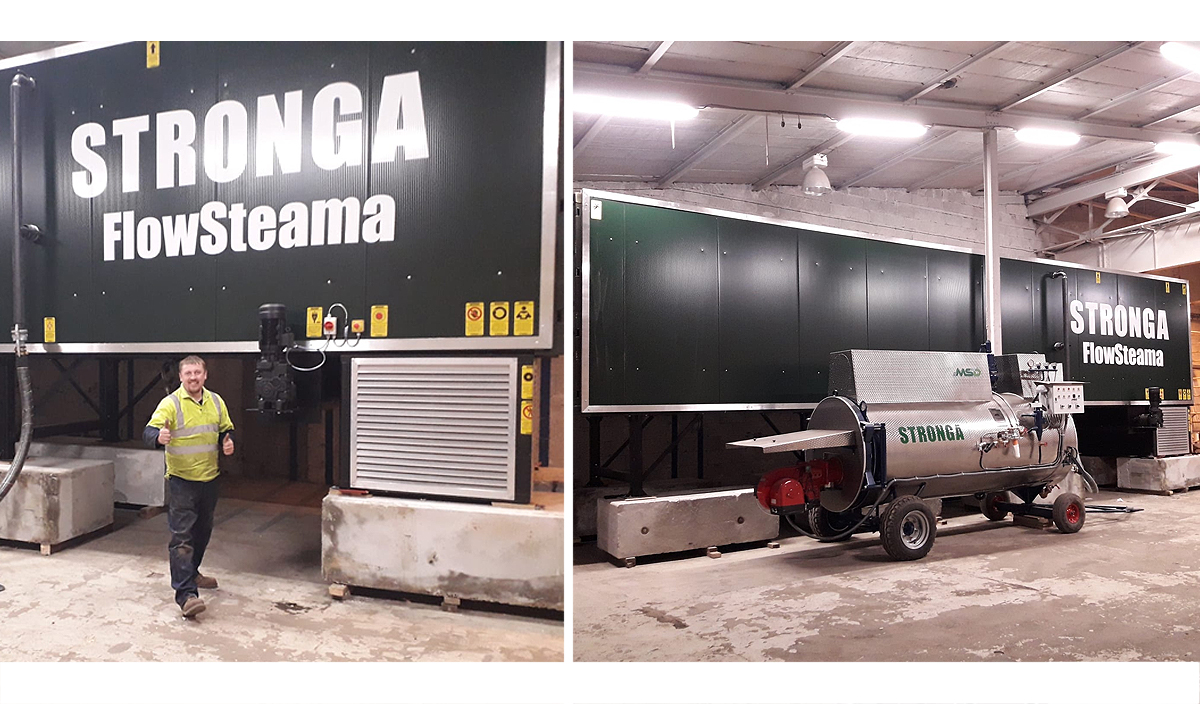
Replacing Chemical Soil Sterilization Methods
Many chemical methods of soil sterilization have become discredited on either environmental or public health grounds (or both). An example is Methyl Bromide which was widely used as fumigant to soil; its use is currently being phased out, prohibited under the Montreal Protocol.

Controlled, Clean Steam Soil Sterilization
Steam-generated moist heat is more effective than dry heat at any given temperature. FlowSteama super-heated steam is the most efficient means for supplying moist heat for soil sterilization which eradicates most plant pathogenic fungi, bacteria, viruses, worms, slugs, and centipedes.
The sterilization method of using clean steam heat eradicates soil-borne plant pathogens from nursery potting media via Stronga FlowSteama - an effective, economic, clean and controlled method of soil remediation.
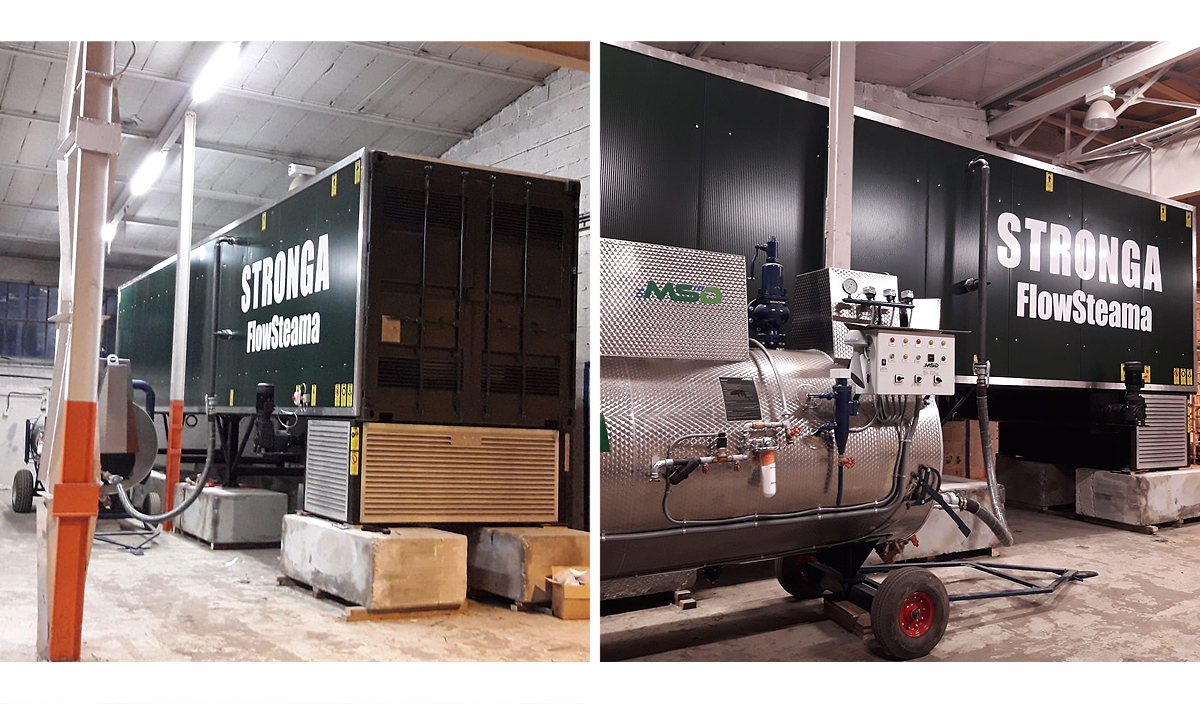
Many organisms harmful to plants can occupy soil and contaminate blended media mixes used to propagate plants in nurseries. This unseen risk can cause wasteful, costly damage to tender, vulnerable growing plants.
Obtaining pathogen-free potting media is a key starting point in producing profitable nursery container stock free of soil-borne plant diseases.
Diseased plant material, together with roots and soil that is planted into field growing units, can introduce pathogens from the container into the planting area. In suitable conditions, pathogens can affect the transplanted stock and may spread beyond the planting areas into the environment to affect other vegetation.
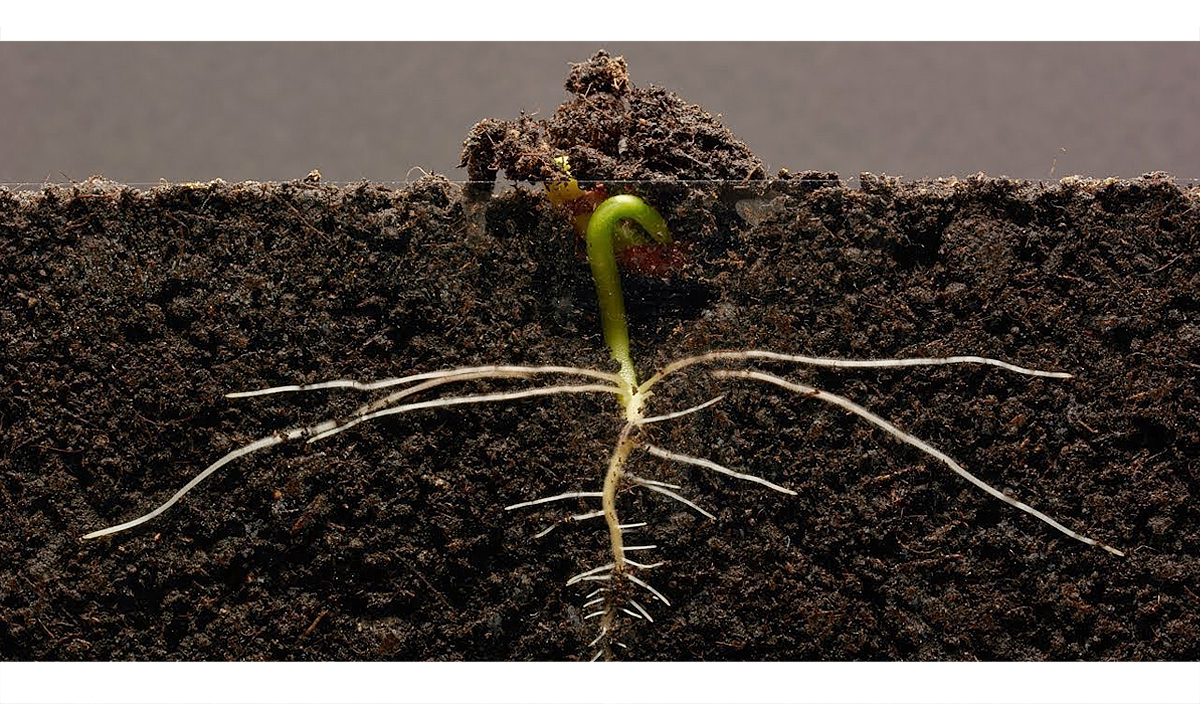
Re-use & Recycle – Closed Loop Soil Hygiene System
Stronga FlowSteama can economically deliver large amounts of sterilised soil substrates in a controlled heat treatment method for soil or potting mix, reaching a target temperature for a client-specified period of time.
The entire mass of soil or whole potting mix reaches the desired target temperature inside the insulated FlowSteama for a client-controlled treatment time period. This control allows clients to minimise energy requirement of the soil sterilisation / remediation while ensuring that the specific pathogens affecting the nursery business are eradicated.
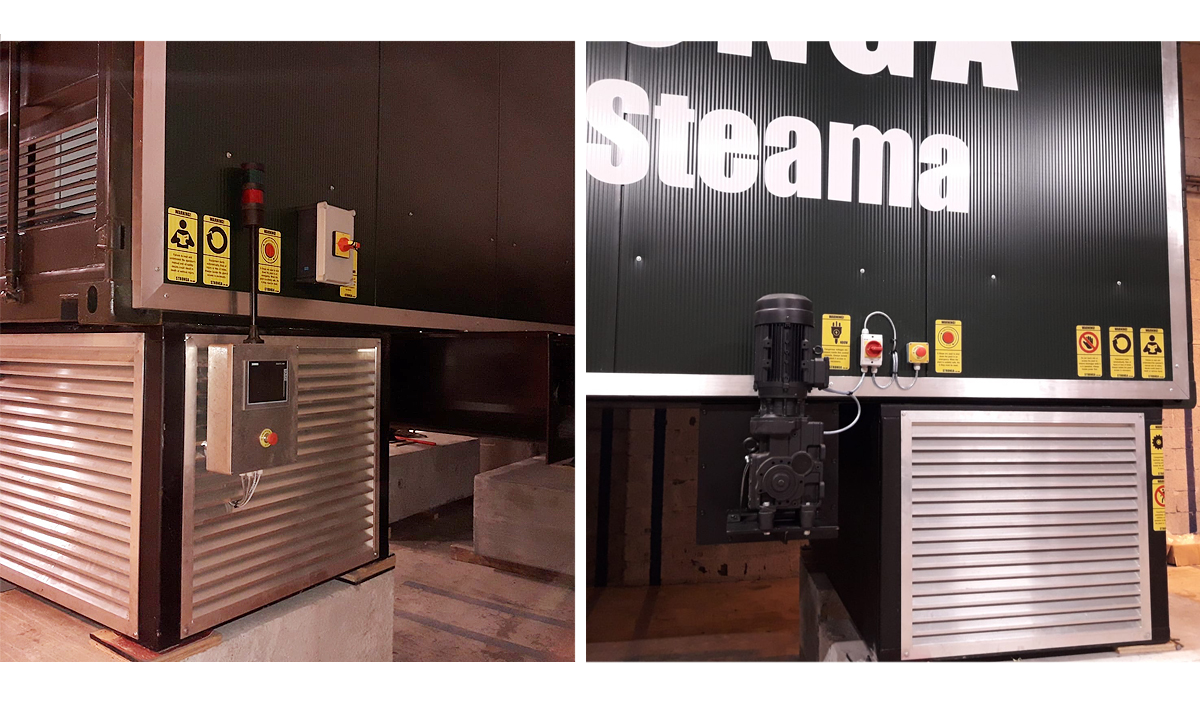
Sensors incorporated into FlowSteama allow better control of treated media blend, soil target temperature and sterilising time period. Uniformity of steam heating and energy requirement can be affected by a variety of factors including variation in compaction of the input material, input moisture level, and sizes of lumps.
The control of residency time setting inside the FlowSteama allows even heat-resistant plant viruses and oily weed seeds to be cleaned from the soil mix.
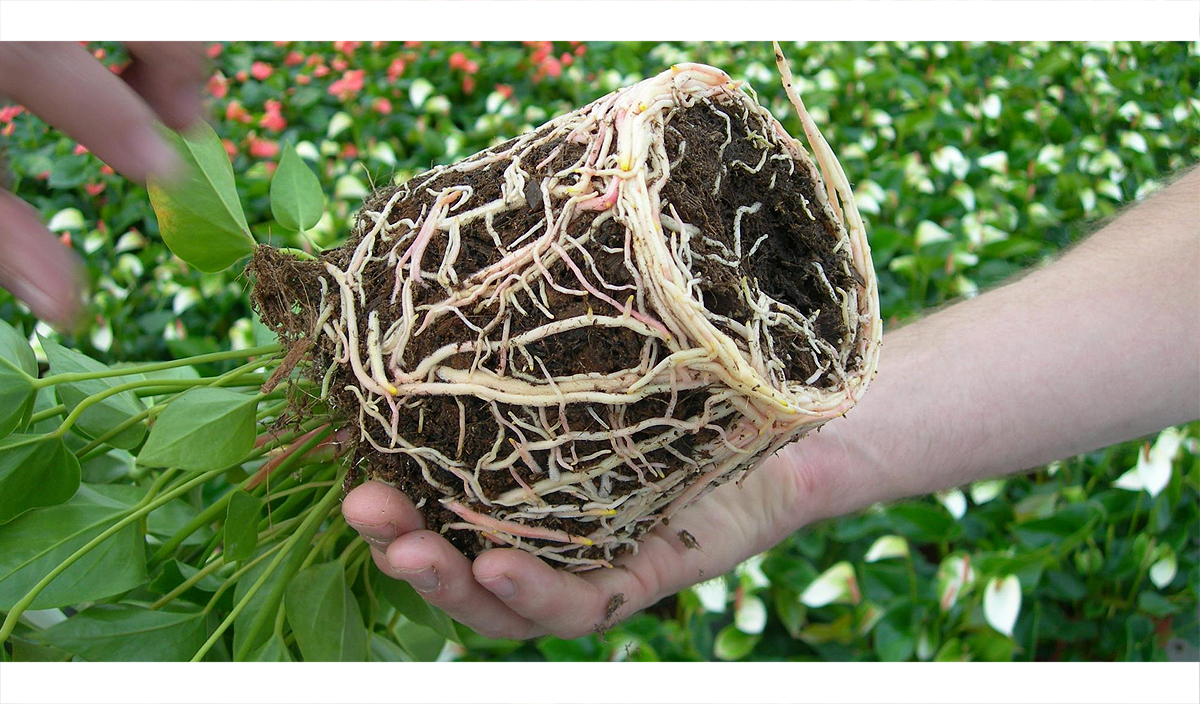
Re-contamination of Steam Heat-Treated Soil
Heat-treated soil can become readily re-contaminated with soil-borne plant pathogens in numerous ways. However, FlowSteama provides an obvious dirty-side / clean-side process line. Some basic hygiene precautions are still needed once your soil has been cleaned with steam:
• Introducing contaminated water via irrigation;
• Planting pathogen-contaminated propagules or seeds;
• Handling treated soil with contaminated implements and equipment;
• Avoiding placing clean treated soil into contaminated equipment, vehicles, bins or pots;
• Placing steam-treated soil on the ground directly or in pots that have been on the ground or contaminated surfaces;
A “start clean and stay clean” process is the best way to ensure that your remediated soil stays clean and does not become contaminated at any stage.
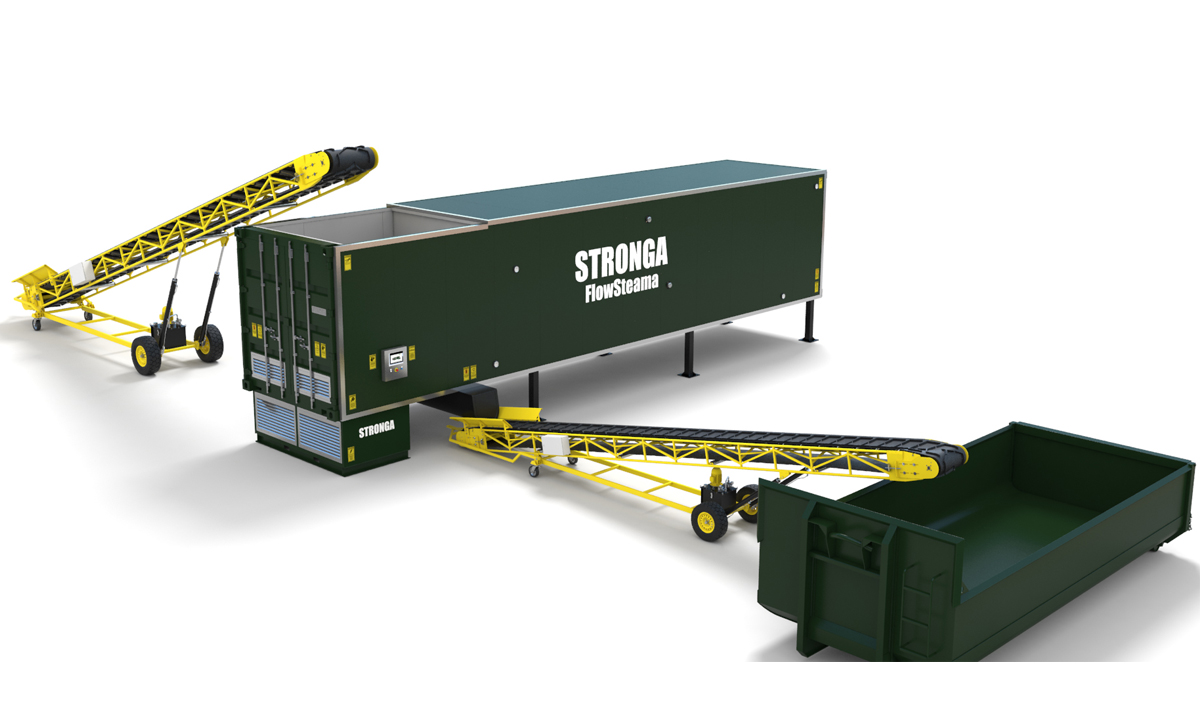
Managing the Beneficial Soil Microbiome
FlowSteama allows effective pasteurising of soil and potting by allowing control of a continuous flow sterilisation; avoiding excessively high temperatures which use more energy than required.
Excessive temperature and soil heating time periods can be avoided, and thus the effect on beneficial microorganisms in the soil microbiome is minimised.
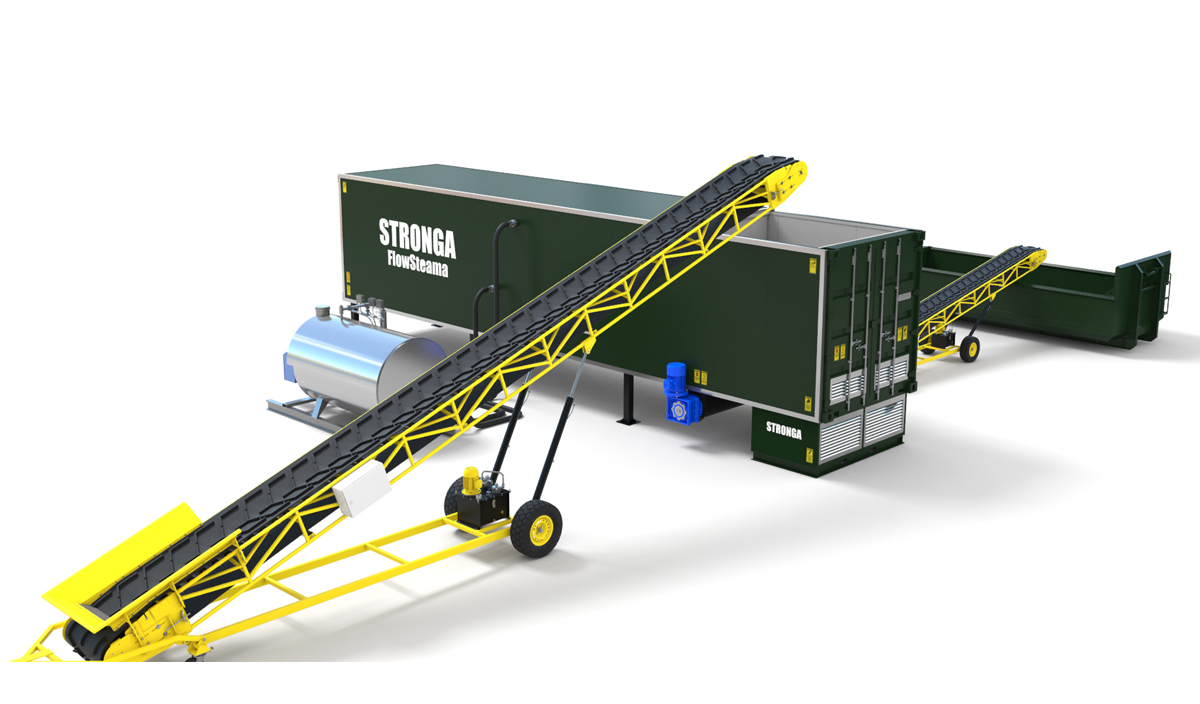
Spores of fungi known to form mycorrhizal associations with plant roots are ubiquitous in soil. Studies have shown that container plants form mycorrhizal associations either in the nursery or after transplanting.
Experiments with heat-treated soil found that plants growing in recently sterilized soil were well colonized by arbuscular mycorrhizae. In general, saprophytic fungi can colonize heat-treated soil more readily than pathogenic water-moulds or fungi, which often have limited saprophytic ability. Hence, destruction of fungi which might have the ability to form mycorrhizae in potting mix by heat treatment of soil is not likely to have a negative effect on plant growth.

Vermiculite and perlite are manufactured using high temperatures and will be free of soil-borne pathogens on first use, so long as they haven't been contaminated after manufacture. FlowSteama allows the whole potting mix blend to be re-used after growing cycles, offering significant cost and environmental benefits.

Commercial compost produced according the country standards may be free of most pathogens, but depending how the material is handled at the composting facility and afterward, has a high risk of being re-contaminated. Nursery growers can avoid the risk by recycling existing growing media while blending in small amounts of organic matter to keep the mixture optimal for plant growth.
Clean soil mix components do not look any different from contaminated components. Components that are produced and moved in bulk can easily become mixed with contaminated material in storage and transport.
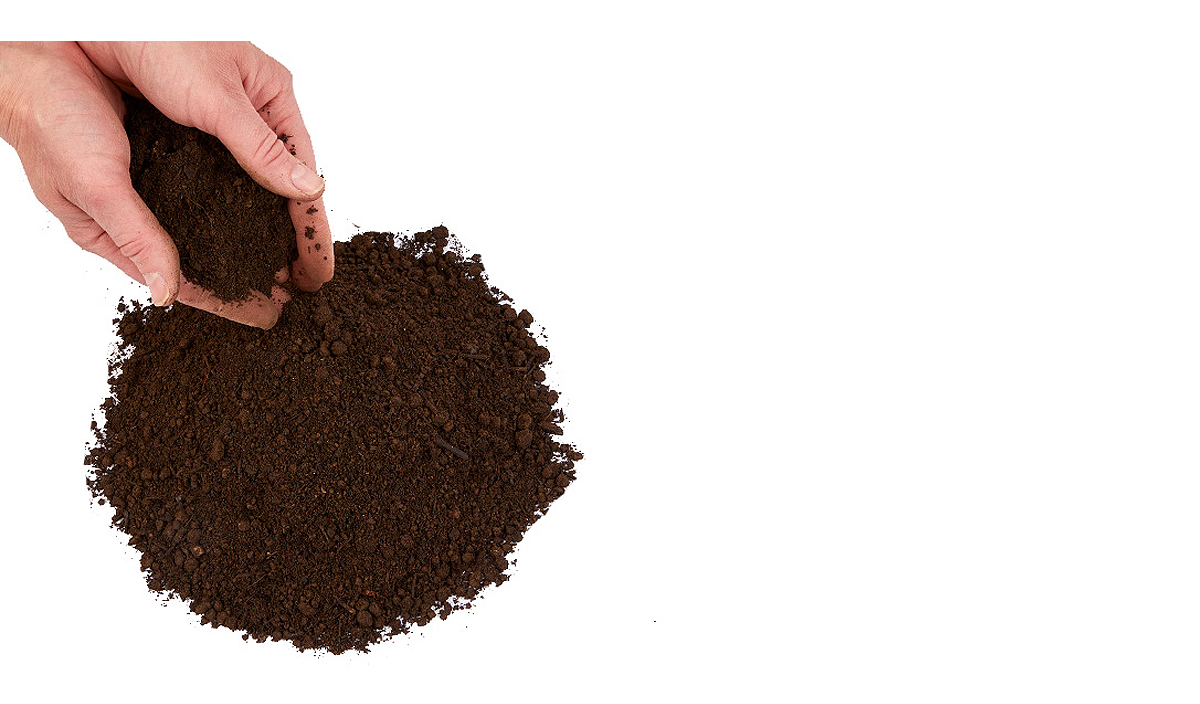
Saving with Steam
The solution is FlowSteama and SteamBoila, both allowing Nursery growers’ many benefits:
• Internalise the growing process;
• Control of cleaning growing media, minimising risks;
• Commercially viable with fast returns on capital invested;
• Extremely cost-effective way to liberate contaminated soil from weed seeds;
• Mobile steam facility which can be moved close to contaminated soil, minimising handling costs;
• Creating a beneficial closed-loop cycle of hygiene in growing soils and potting mixes, minimising risk of contamination;
• Controlling the soil sterilizing / remediation process on-site, at low cost, with a low labour method of continuous flow soil sterilization.



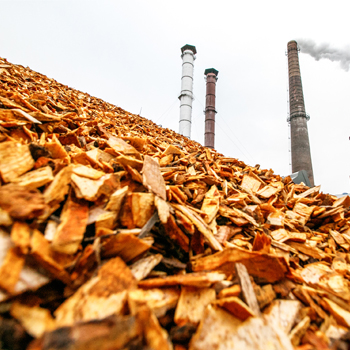
Share this post